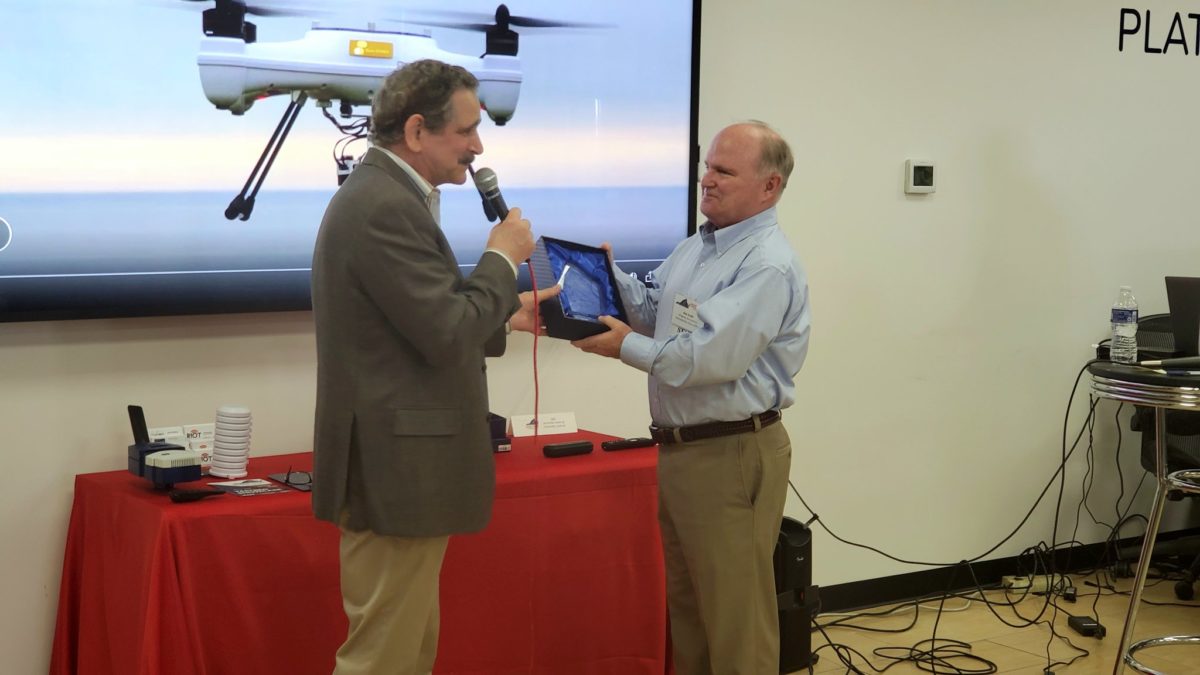Whether you’re a birthday person or not, it’s always nice to take a moment of reflection every year or so — especially if you’re a program looking to make an impact on the local community.
This month marks the first anniversary of the Virginia Smart Community Testbed, a local program to assist technology-based startups. The program was developed through a partnership between Virginia’s Stafford County, the Virginia Innovation Partnership Corporation (VIPC) and OST. It is designed, according to VIPC CTO and VP David Ihrie, to prove the value of new technologies. Once that’s done at a price point that works for community adoption, the program pushes those technologies into practice to get them implemented. So far, Ihrie said, it’s gotten support from all three levels of government.
Local startups can take part in a few different ways. One is via the Testbed’s ties to local, state and federal government entities, as well as private sector partners. For them, several technologies are actually worth researching, so with funding from the federal government (through the Department of Homeland Security’s Science and Technology Directorate), the Testbed can take some of the technologies for which the government has expressed interest and try to get them deployed.
It also works with the RIoT accelerator, which helps startups with the internet of things (IoT) technology develop their products and get them to market. The Testbed tries to place those companies into different pilot projects, as well as works with the county and any startups it might have eyed.
“The biggest challenge facing a new entrepreneur is always to get that first customer — somebody who’s willing to try their stuff, who’s willing to be a reference customer,” Ihrie told Technical.ly. “And so, this is a mechanism to help them.”
On the flip side, Ihrie also sees the program as an asset for local government, even for a county such as Stafford that’s already pretty well off and organized. But he noted that for smaller counties, it’s particularly useful for issues such as cybersecurity. While there are state agencies for cybersecurity, there’s no equivalent for local governments. He hopes the Testbed can offer a place to bring that cyber expertise and make it available to local governments that can then, hopefully, become less vulnerable.
So far, the Testbed sent nine different projects through the program process this year; one of those projects had six different companies working on it. All in all, he thinks about 20 companies have participated so far, with eight more in the accelerator program, and several projects have been completed.
“It’s been pretty much [something] of a rocket ride,” Ihrie said. “It’s been a very exciting year and I really, really couldn’t have asked for much more. It’s far exceeded everybody’s expectations.”
For its second year (and more to come), Ihrie has a few ideas. He’d like to see more of a holistic, integrated approach for IoT devices and critical infrastructure or control systems. He’s also hoping for more data sharing and making something like the Commonwealth Data Trust into a national data trust. He’d additionally like to see more work on the computing side, particularly in quantum.
But on the whole, he wants the testbed to be a place where startups can get a true feel for how their technology will exist in the real marketplace.
“We’re really looking for, what are those few things that we can we can actually demonstrate in the real world, in the Testbed, that can start showing economic development outcomes?” Ihrie said. “That can also start showing: Here’s a robust, viable business that can hire people, that can create jobs.”
Join the conversation!
Find news, events, jobs and people who share your interests on Technical.ly's open community Slack

DC daily roundup: Inside UMCP's new ethical AI project; HBCU founder excellence; a big VC shutters MoCo office

DC daily roundup: Esports at Maryland rec center; High schoolers' brain algorithm; Power data centers with coal?

DC daily roundup: Tyto Athene's cross-DMV deal; Spirit owner sells to Accenture; meet 2GI's new cohort


